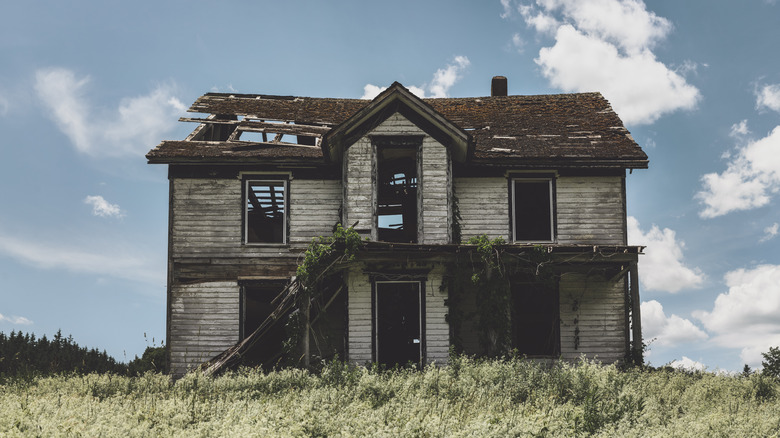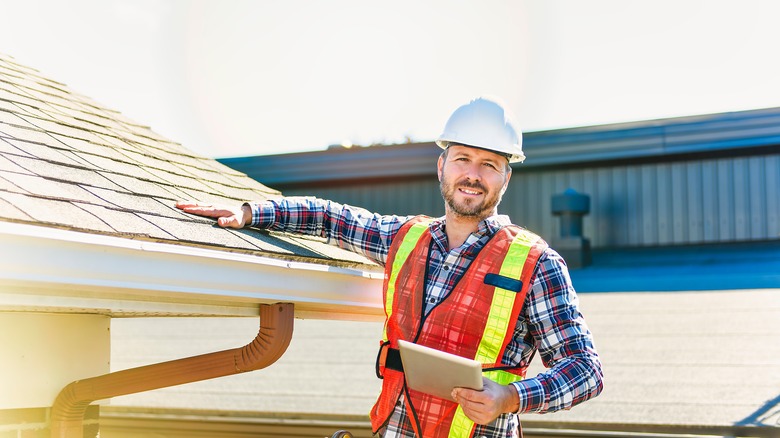What To Look For In Your Own Fixer Upper, According To Joanna Gaines
If you're a home improvement show devotee or even an occasional viewer, you might dream of finding your own diamond in the rough and renovating it to live in or flip. It can be a worthwhile endeavor from a financial standpoint, and some homeowners find it to be very rewarding to update an abode with their own personal remodeling touches. To keep your pet project from turning into a budget-busting disaster, there are some things to look for in the property from the get-go. What's at the top of the list, according to ultimate "Fixer Upper" Joanna Gaines? The main focus should be structural soundness.
"One thing I want to stress is that every home has potential," Gaines says in an Architectural Digest interview, "But ultimately, the potential has to meet the total renovation budget realistically. Always get an inspection to make sure the home is structurally sound; we've seen foundation issues that will cost up to $20,000. If the cost of the structural issues is cutting too much into the total renovation budget, we know it's not 'the one' and encourage our clients to keep looking."
More major issues that can crop up in a fixer upper
Foundation problems can indeed be costly to remedy. That's not the only type of hidden issue you might run across in a fixer-upper, though. Older homes can have problems with electrical wiring hidden within the walls, or the electrical system as a whole may not be up to snuff when it comes to modern appliance and tech requirements. Plumbing and sewer systems are other areas that may need improvements that can be costly to address.
All these issues should be uncovered by a professional home inspector. During the inspection, the attic, crawlspaces, and other areas you don't typically see in a walk-through with a real estate agent will be examined for hidden issues for you to consider. Each one has the potential to eat into your allowance for repairs and renovations, so it's important to discover everything before sealing the deal on a fixer-upper.
Other budget-busting issues to consider when purchasing a fixer upper home
What other major cost considerations should you take into account when contemplating a fixer-upper? For one, it can be risky to buy a home with roof damage — making sure it doesn't need to be extensively repaired or replaced is imperative. The air conditioning and heating system should also be in good working order since they can be expensive to replace. Broad repairs to patios, decks, driveways, and pools (which may require a separate inspection) can also add thousands of dollars to your punch list. Hidden damage from insects like termites, even if the pests have already been eliminated, can also be expensive to repair. After your inspection, you can also call in pros to specifically address any problem areas and get estimates on what it might take to repair them.
These factors may not be deal-breakers if you fall in love with a fixer-upper. But as Gaines suggests, you should be acutely aware of how each one of these types of repairs will eat into your budget. If you're way over, it's often best to keep looking.


